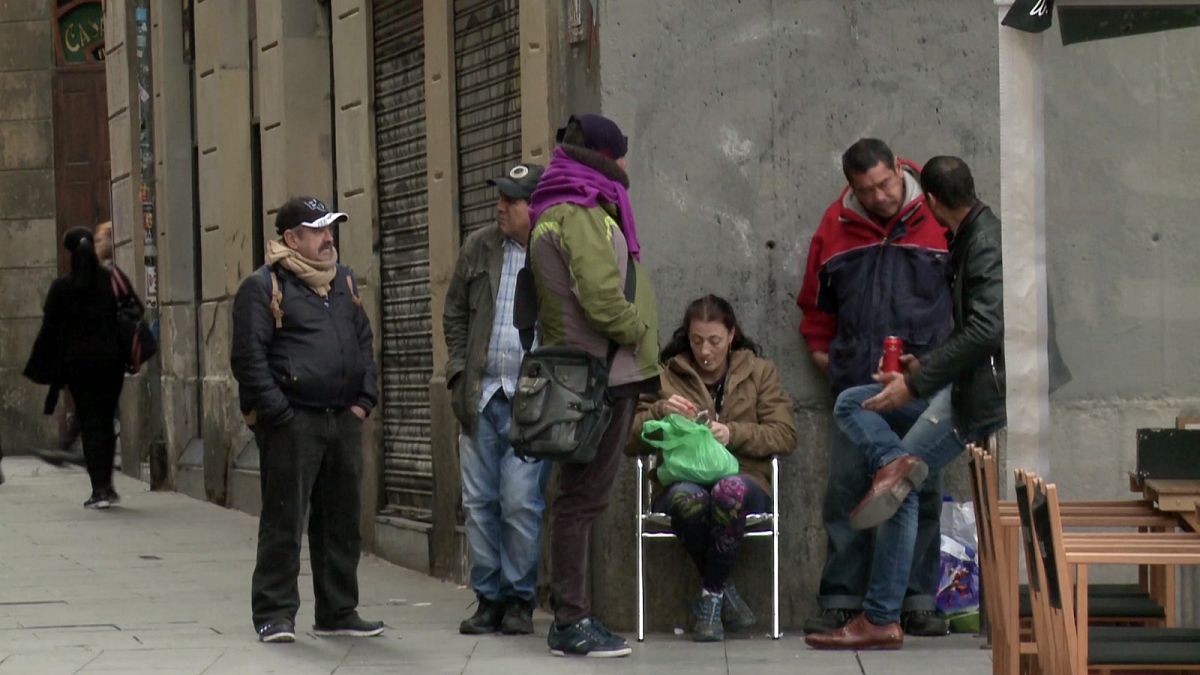The push by Catalan separatists towards independence has monopolized front pages, air time and debates across the country. The lack of dialogue between the Madrid and Catalan governments has relegated
The push by Catalan separatists towards independence has monopolized front pages, air time and debates across the country in the recent months and years. And the lack of dialogue between the Madrid and Catalan governments has relegated the most pressing social problems to the shadows. Flags have become more important than people’s need.
Susana Rodríguez is a doctor in Barcelona,
“During this whole time, politicians have been more concerned about other issues and they were not talking about issues that are a priority for people such as healthcare”
In 2010, the Catalan healthcare system lost 1.5 billion euros from its budget, 2400 professionals and 1100 hospital beds. This doctor thinks that the “Catalan process” has diverted people’s attention from these problems.
“There has been an increase in waiting lists, the subject of the process is an excuse not to mention this, not only in Catalonia but also in the rest of the country.”
When independence was promoted by former Calalan president Artur Mas coincided with the worst social cuts: privatization and job losses. Catalonia was the most affected. Ever since, funding levels have stayed low and groups have tried to pressure on the government to put the social agenda first.
Anna Vall-Llosera is a from the Catalan Forum for Primary Attention,
“What we want is for political actors to agree to help rescue the health system that was so badly damaged during the crisis”.
Social laws have been a battlefield. In June, the regional Government restored the universal health system in Catalonia in defiance of the decree of Spain’s prime minister Mariano Rajoy, who put an end to the service in 2012.
Joan Manel Bargalló is a citizen of Tarragona,
“I think it should be a different country. Politicians can promise a lot but they should be able to do it, they should be free to do it…because if they only find obstacles, obstacles, obstacles…. these negative answers should end one day”
‘Caritas’ distributes food in a neighbourhood in Barcelona with scarce resources. In Catalonia, 190,000 people need social organizations to survive. In 2016, they served more than 1.5 million people, 34.000 more than the previous year. According to the INE, 19.2% of Catalans are living on the poverty line.
The president of Catalonia Third Sector Entities, Francina Alsina spoke of the spread of poverty,
“There is an increasing impoverishment of the population, and now we’re finding for the first time that there is an ‘impoverished working population’ who cannot pay their electric or gas bill.
There are half a million poor workers in Catalonia, 30,000 more than last year. Carlos works for €5 an hour in an intermittent job that doesn’t pay enough for him to live to the end of each month, so he has to resort to social handouts. He has no faith in politicians from any party,
“They live in another galaxy, in another world of hotels and food. They caught some with money in the Bahamas … They should come here, here you see what the people need: the metro bonds, the electricity bond…but who is worried about this? No one.”
During the campaign the Catalan political parties from every side talked about social issues in order to broaden their electoral base, or to achieve future agreements with related parties. But it seems that in the voter’s final decision, will come down to the political project: Independence or constitutionalism.
